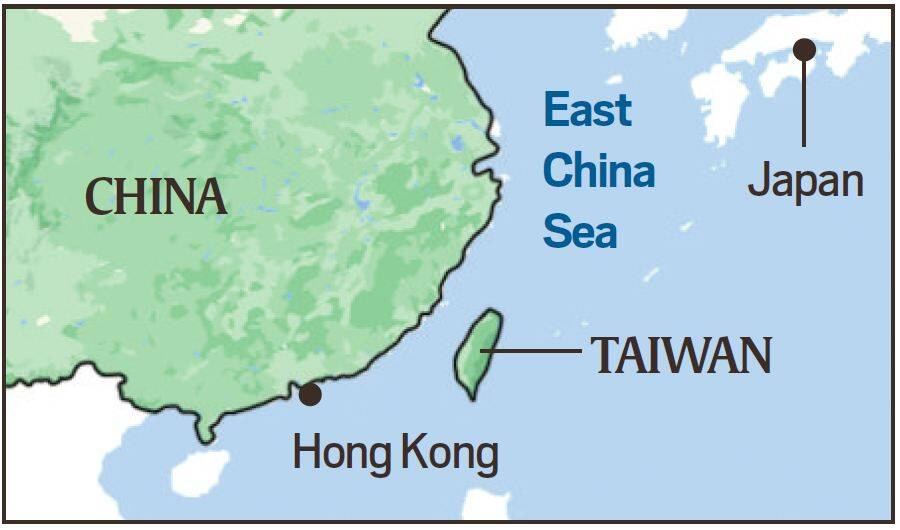What’s in News?
China warned that US House Speaker Nancy Pelosi’s visit to Taiwan disregarding its stern warnings will have a “severe impact” on bilateral ties and her move “gravely undermines” regional peace and stability.
Background of dispute between China- Taiwan:
Taiwan seems to have first appeared in Chinese records in AD239, when an emperor sent an expeditionary force to explore the area.
This evidence is used by Beijing to back its territorial claim.
After a relatively brief spell as a Dutch colony (1624-1661), Taiwan was administered by China's Qing dynasty from 1683 to 1895.
In 1895, Japan won the First Sino-Japanese War, and the Qing government had to cede Taiwan to Japan under the Treaty of Shimonoseki.
After World War II, Japan surrendered and relinquished control of territory it had taken from China.
The Republic of China (ROC) - one of the victors in the war - began ruling Taiwan with the consent of its allies, the US and UK.
But in the next few years a civil war broke out in China, and the then-leader Chiang Kai-shek's troops were defeated by Mao Zedong's Communist army.
Chiang, the remnants of his Kuomintang (KMT) government and their supporters - about 1.5m people - fled to Taiwan in 1949.
This group, referred to as Mainland Chinese, dominated Taiwan's politics for many years though they only account for 14% of the population.
Later that same year, Communist leader Mao Zedong declared the birth of the People's Republic of China (PRC) from Tiananmen Gate in Beijing.
The two sides have been governed separately since, though a shared cultural and linguistic heritage mostly endures - with Mandarin spoken as the official language in both places.
Chiang established a government in exile in Taiwan which he led for the next 25 years.
President Lee Teng-hui, known as Taiwan's "father of democracy", led constitutional changes towards, which eventually made way for the election of the island's first non-KMT president, Chen Shui-bian, in 2000.
China proposed the so-called "one country, two systems" option, which it said would allow Taiwan significant autonomy if it agreed to come under Beijing's control
Taiwan rejected the offer and Beijing's insisted that Taiwan's ROC government is illegitimate - but unofficial representatives from China and Taiwan still held limited talks.
China views Taiwan as an inseparable part of its territory - even though the Chinese Communist Party has never governed the island.
'One China' policy:
It is the diplomatic acknowledgement of China's position that there is only one Chinese government.
Under the policy, the US recognises and has formal ties with China rather than the island of Taiwan, which China sees as a breakaway province to be reunified with the mainland one day.
The One China policy is a key cornerstone of Sino-US relations.
It is also a fundamental bedrock of Chinese policy-making and diplomacy.
However, it is distinct from the One China principle, whereby China insists Taiwan is an inalienable part of one China to be reunified one day.
Although Taiwan's government claims it is an independent country officially called the "Republic of China", any country that wants diplomatic relations with mainland China must break official ties with Taipei.
This has resulted in Taiwan's diplomatic isolation from the international community.
One China Principle and One China Policy:
It is important to distinguish between the One China Principle and the One China Policy to understand the cross-Taiwan Strait problems.
The PRC follows the One China Principle, a core belief that sees Taiwan as an inalienable part of China, with its sole legitimate government in Beijing.
The US acknowledges this position but not necessarily its validity.
The US instead follows the One China Policy — meaning that the PRC was and is the only China, with no recognition for the Republic of China (ROC, Taiwan) as a separate sovereign entity.
At the same time, the US refuses to give in to the PRC’s demands to recognise Chinese sovereignty over Taiwan — it only acknowledges the Chinese position that Taiwan is a part of China.
Recognition of Taiwan:
Fifty years ago, the United Nations voted to recognise the People's Republic of China (PRC), the Communist government that took power in the mainland as the "only legitimate representative of China".
Today only 14 nations give diplomatic recognition to Taiwan, and thus do not have official ties with China.
India’s Relation with Taiwan:
India does not have formal diplomatic ties with Taiwan yet, as it follows the One-China policy
Like most countries, it maintains commercial ties with Taiwan.
While following the One-China policy, India has an office in Taipei for diplomatic functions — India-Taipei Association (ITA) is headed by a senior diplomat.
Taiwan has the Taipei Economic and Cultural Center (TECC) in New Delhi. Both were established in 1995.
Their ties focus on commerce, culture and education.
News Summary:
China views Pelosi’s visit as a serious violation of the “One China” principle and the provisions of the three China-US joint communiqués.
This, according to the Beijing, gravely undermines peace and stability in the region, and sends a wrong signal to the “separatist forces for Taiwan independence”.
US has reiterated that there was no change in US policy on Taiwan.
US officials argued that Pelosi is not the first American lawmaker, nor her delegation the first US legislative team to visit Taipei.

 UPSC - 2027 - Prelims cum Mains - Foundation Course / Orientation on 08-03-2026
UPSC - 2027 - Prelims cum Mains - Foundation Course / Orientation on 08-03-2026 